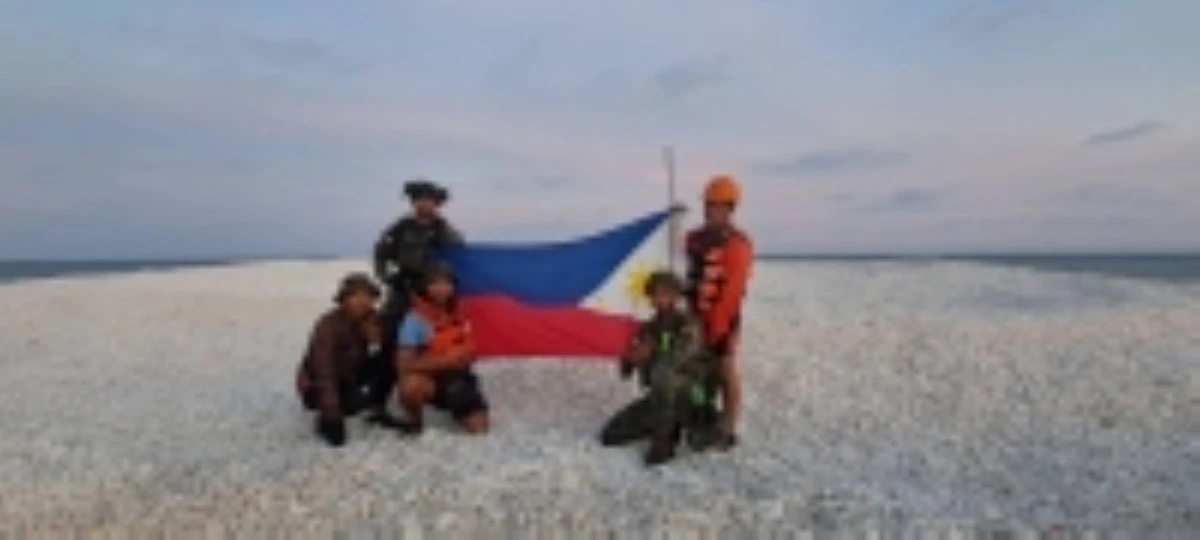Self-reliant defense system: Philippines crafting long-term West PH Sea policy
At A Glance
- National Security Adviser Eduardo Año said that part of the development of the long-term policy is to ensure that this would be implemented regardless of who sits in Malacañang.

The Philippine government is now crafting a long-term policy to protect the country’s sovereignty amid what local defense and security officials described as China’s baseless, excessive, and expansive territorial claims, militarization, and confrontations with its neighbors.”
In an online forum “Scarborough Shoal: Facing Facts and Exploring Options”, National Security Adviser and National Security Council (NSC) Director General Eduardo Año said that part of the development of the long-term policy is to ensure that this would be implemented regardless of who sits in Malacañang.
“We continue to work on addressing gaps such as crafting a long-term policy for the WPS—one which would transcend administrations in order to ensure its continuity and sustainment as the government pursues our agenda in view of geopolitics and international relations,” said Año in the forum organized by the Stratbase Institute, in partnership with Stanford University’s SeaLight project.
“We have also taken important steps in building and developing defense and civilian maritime law enforcement capabilities, capacitating human resources, and capitalizing on existing and new security partnerships with like-minded allies. A robust, credible, and self-reliant defense system is on top of our priorities to meet any challenge to our sovereignty, sovereign rights, and maritime jurisdictions,” he added.
Strong support from Pinoys
Victor Andres “Dindo” Manhit, Stratbase Institute president, dubbed the Philippines as a “force to reckon with” particularly in terms of protecting its territory and sovereignty.
He also underscored the strong support from the Filipinos in terms of strengthening the Philippine government’s alliance with other countries through joint patrols and military exercises to assert and defend the Philippines’ territorial and economic rights in the West Philippine Sea.
“The overwhelming support from Filipinos in defending our rights in the West Philippine Sea underscores the urgency of reinforcing our defense posture, upholding international law, and collaborating with allies to deter any threats,” Manhit said.
Manhit noted that since 2012, the Philippines has upheld its maritime and economic rights at the Scarborough Shoal and the broader WPS—something that the country will continue to do with “enduring, unwavering commitment.”
“It has now been 13 years since the Scarborough standoff—a two-month naval confrontation between the Philippines and China that marked one of the most significant territorial encroachments in Indo-Pacific history… The Philippines, together with its like-minded partners, remains steadfast in upholding the rules-based international order and ensuring peace and security in the Indo-Pacific,” he shared.
Expansionism
During the forum, SeaLight Director Ray Powell revealed their findings that China has been expanding control over Scarborough Shoal, doubling over the past 12 months, and that they continue to push further east.
“China doubled its paramilitary force. I define paramilitary as being China Coast Guard and maritime militia, and those were the numbers, of course, along with those dangerous air and sea maneuvers that we discussed earlier,” Powell explained.
“China has really doubled down on its strategy to take control of Scarborough Shoal, to change the facts on the water, if you will, or the facts on the shoal to sort of enforce its claim to own or to be sovereign over Scarborough Shoal,” he said.
Powell also emphasized China’s continuous destruction of the Scarborough Shoal. He said satellite images and data analysis show that China’s giant clam harvesting, which is a destructive method of getting resources in reefs, has apparently continued through early 2024,
“We believe that actually Beijing is lying about the condition of Scarborough Shoal that it put out in its assessment, and that, as others on this call have indicated, that the condition of the shoal is actually quite serious, and that what China is telling the world is quite different than what it is telling its own people, which is why the fishing fleet has disappeared since last June,” he added.
“We believe very strongly that China is not telling the truth about its assessment [released July 2024], that it actually found significant damage, and that it recognizes that unless it takes care of the shoal, that everybody else is going to soon know how bad the damage has been,” Powell noted.